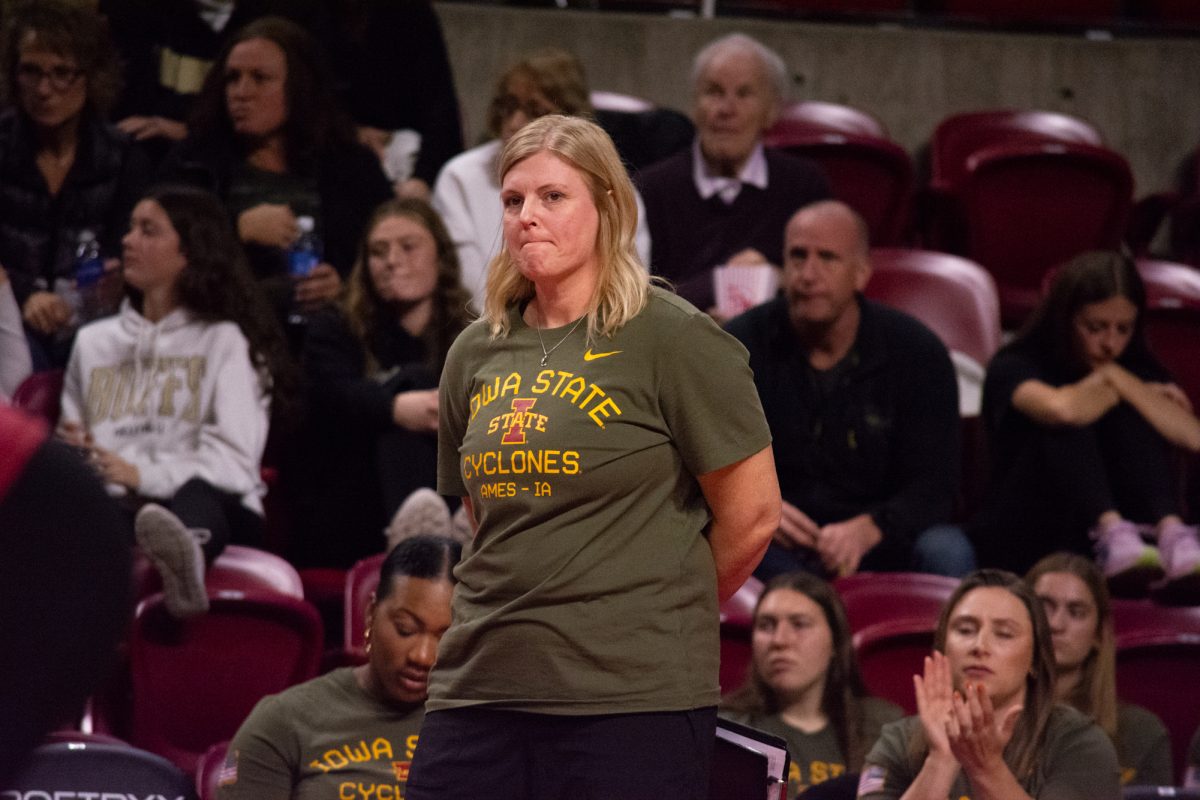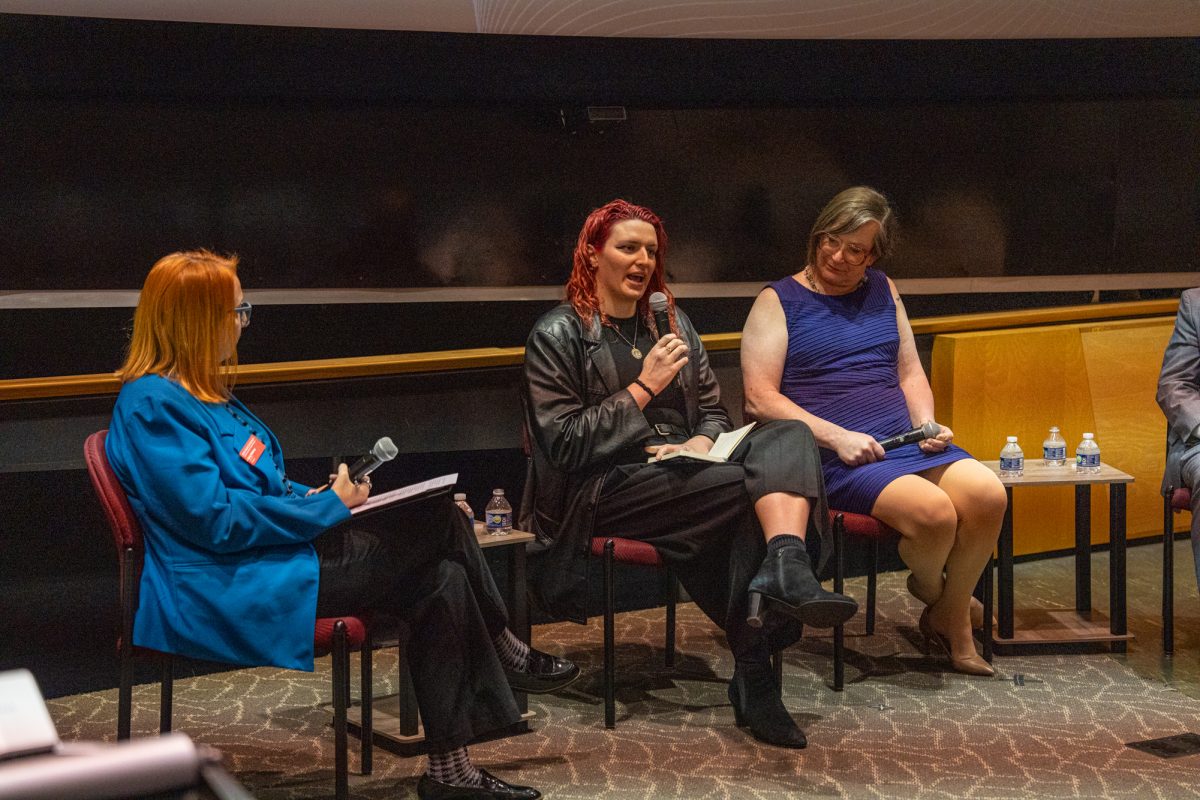Using the Bible as evidence in debates and discussions
October 3, 1996
Over the years I’ve seen scores of letters in the Daily arguing about nearly everything.
A number of the authors appeal to the Bible as evidence for their position.
At times these letters have been summarily — and rudely — dismissed as mere rantings of Bible-beaters.
I’ve wondered many times how other believers have felt both about the use of the Bible in a literalistic way and about the summary dismissal of religion.
A recent lecture led me to reflect on this anew. Last week a theologian from Georgetown University spoke at Iowa State University on “God After Darwin.”
During the question period after his presentation two students asked him whether he believed in the Bible and whether his theology was in accordance with the Bible.
Professor Haught answered, “I take it seriously, but not literally.”
A merely literal approach, he went on to suggest, can sometimes obscure the more profound religious meaning of the scriptural texts.
Here were people who consider themselves Christian but who disagree about the use of a central text.
Within Christianity there are different ways in which the Bible is approached: from the inerrancy of the fundamentalist stance to the demythologizing approach of some liberal Protestant denominations and the Jesus Seminar.
Catholics — somewhere in the middle — see the Scripture as the inspired word of God — expressing in varied literary forms the experience of God held by the community of faith.
The experience is primary — in Christianity that is the experience of Jesus the Christ.
Thus even in theological debates within Christianity, appeal to the Bible is not always enough to convince.
But in the public debate, how are the Bible, the Quran or any other sacred texts to be used?
This is the first of a series of columns contributed to the Iowa State Daily by members of the Campus Ministers Association and other recognized religious bodies in the Ames and ISU community. So it might be useful to raise this question at the start.
Sacred texts arise from within believing communities — and as such express their experience of the revelation of God.
Those outside the community are not likely to be affected by an appeal to those texts.
There may be a few atheists or agnostics who have been converted by the beauty of the Bible or captivated by the story of Jesus.
More likely, they have experienced something of the divine which the Bible and a particular community of faith help make clear as an explicit revelation of God.
Likewise in arguments about abortion, war, capital punishment, homosexuality and other ethical issues, a mere appeal to a bible text or to a doctrine is not liable to convince an unbeliever.
A true dialogue needs the establishment of a common ground of meaning — some areas where people agree, whether it be in regard to terminology, rules of the game.
If you want to convince others, it’s important to start where you agree. And first of all, I’d suggest that we should agree that we are searching for the truth.
A Christian should have no trouble with this, since, we believe that Jesus is the Truth.
Therefore we should be willing to offer a reason for our faith — and search for a common ground. For believers, reason is a gift of God to be used in the pursuit of truth.
It is also important to preserve a true sense of dialogue and mutual respect. In issues that so touch the depths of who we are, it is very easy to become wrapped up in ourselves, to demonize the other and to argue at rather than with others.
Several years ago Sidney Callahan, a pro-life feminist married to a pro-choice ethicist, pulled together a list of rules for dialogue.
1. “Be obsessively civil, courteous and charitable in your use of words.”
2. “Always show respect for your opponents and assume their good will and sincerity.”
3. “Try to argue against the best representative of your opposition, and not against a strawperson or the other side’s most repellent fanatic extremist.”
4. “Admit the price of following your own position.”
And I would add, we should always be willing to challenge ourselves and our opposition to be faithful to the truth.
That’s what we’re here at the university for anyway, isn’t it?
Religion is an important part of life in the U.S. and the world. The bible and other sacred texts have helped many to make sense of life.
But let us be careful how we use them—as a light to enlighten or as a club to silence others.
John A. Donaghey is a lay member of the campus ministry staff at St. Thomas Aquinas Church and Catholic Student Center. He holds a Ph.D. in Philosophy from Boston College.






